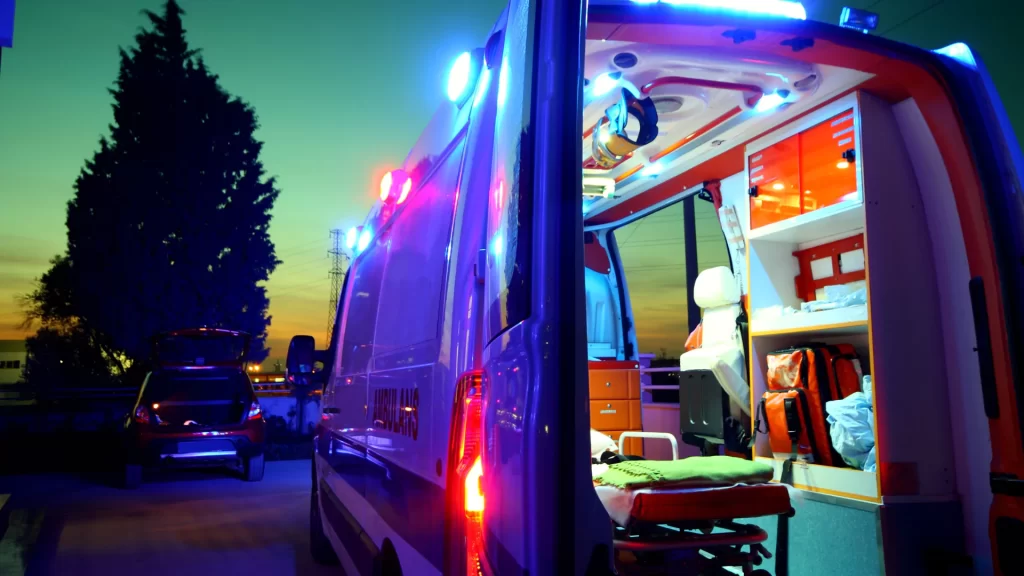How to Handle Medical Emergencies in a New Country

Medical emergencies can be a stressful experience, especially if they occur while traveling abroad. Completely inefficient systems, a language barrier, and lack of preparation can increase the experience of the situation, but knowing the appropriate steps will make one face medical emergencies confidently. Here is a guide on managing medical emergencies in a new country.
1. Prepare in Advance
Preparing ahead is the most important step toward effective emergency management. Before you go, do the following:
- Know the Emergency Numbers: Find out what the local emergency telephone numbers are for ambulance services, police, and fire departments. Some countries consolidate all emergencies under one number (such as 112 in Europe), while in some places, there are separate numbers.
- Find Out Nearby Hospitals: Research hospitals, clinics, and urgent care centers near your home or workplace.
- Understand Your Insurance Coverage: Confirm whether your health insurance covers emergency care and what steps you need to take in case of an emergency.
2. Keep a Medical Emergency Kit
Stock a chest full of lifesaving supplies that may include the following:
- Basic first-aid supplies (bandages, antiseptic, scissors, etc.);
- Any prescription medications that you or other family members might use;
- Over-the-counter medications to relieve pain, allergies, or stomach upsets;
- A list of emergency contacts including your doctor and insurance provider.
3. Overcome Language Barriers
There is an acute communication gap when it comes to medical treatment where language difference adds another dimension to the event. Prepare the following:
- Acquire Important Medical Terminology: Develop your ability to understand common phrases or symptoms.
- Use Translation Apps: Install an application, such as Google Translate, to help fill the gaps in case of an emergency.
- Acquire Medical Information Card: Develop a card with medical history, allergies, and current medications in the local language
4. Act Quickly and Call for Help
A prompt action is taken in case of an occurrence of an emergency:
- Call Emergency Services: Use the local emergency number to call for an ambulance in case it is required. Be prepared to give your whereabouts and a brief explanation of the situation.
- Seek Near Help: In a public place, request assistance from any local or help desk staff member. They will guide you in finding the nearest medical facility or translating it.
5. Visit the Nearest Hospital or Clinic
On reaching the medical facility:
- Present Your Insurance Details: Provide your health insurance details to confirm coverage. If you have international health insurance, check to ensure the hospital is within their network.
- Effective Communication: Use a translational tool or a local interpreter to explain symptoms and medical history.
- Query: Make sure you know what the diagnosis, treatment plan, and all the costs will be.
6. Understanding Payment Systems
Payment systems for healthcare are different across countries. Some will require you to pay and later ask for refunds from your insurer. To prepare:
- Carry Emergency Fund: Keep cash or a credit card handy for those unanticipated medical expenses.
- Ask for Item-Specific Receipts: They will be used to prove claims to insurers or prepare tax deductions for you.
7. Know When to Contact Your Embassy
In severe cases, such as accidents or hospitalizations requiring long-term care, reach out to your country’s embassy. They can:
- Provide guidance on local healthcare systems
- Help contact family members or friends
- Assist in arranging medical evacuation if necessary
8. Maintain Follow-Up Care
After the initial emergency is resolved, follow up with a healthcare provider to ensure proper recovery. This may involve:
- Keeping your insurance provider informed about ongoing care
- Visiting a local specialist or clinic for further treatment
- Updating your medical records
9. Learn from the Experience
Think back about the related events after the crisis is over, and analyze what went right and what would have gone better. This evaluation is important for making preparations for future emergencies. Maybe you want to think about improving or adding to your emergency kit, finding out more on local healthcare, or even strengthening your language abilities.
Medical emergencies in a foreign country can make anyone’s heart sink, but the truth is that nothing beats being prepared and knowing how to obtain necessary information. You will have the local healthcare system knowledge, a great deal of essential information to carry, and know how best to act in critical situations and ensure proper access to care for your loved ones whenever needed. With little preparation like this, you will surely be able to take on any face of difficulties and enjoy your stay in the new home without fretting out where to find help in case of having these difficult times.
